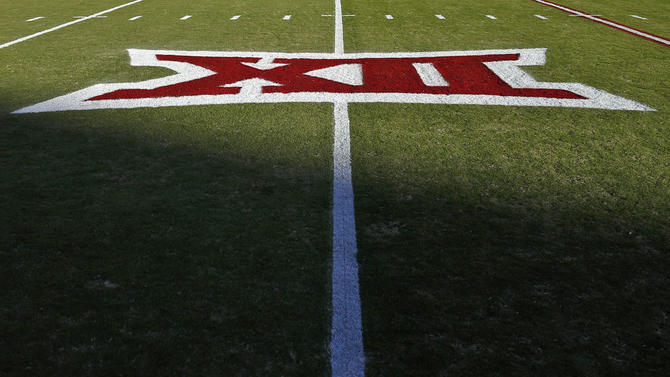IRVING, Texas -- Oklahoma president David Boren said a whole lot of nothing Thursday night. In fact, for the Big 12 board's chairman, it was something close to a filibuster for a roomful of reporters anxiously awaiting expansion news.
"We are in a position of strength," Boren said as the league continues to consider its future this week at its spring meetings.
That from a guy who was advocating for expansion a year ago and once said, in 2011, that Oklahoma would not be a "wallflower" in conference realignment. That comment alone may have driven Missouri to the SEC.
"I don't have a crystal ball," Boren added Thursday. "My crystal ball has always been a bit cloudy."
Let's clear it up a little bit, then. A clearer picture is emerging of the Big 12's expansion process:
Good times ahead: The league may announce as soon as Friday a "significant" revenue distribution increase. Bowlsby has already said there could be as much as a $3 million bump per school, up from $23.3 million.
The Big 12 is currently fifth (last) among Power Five schools in revenue. A revenue bump that pushes the league to third -- behind the SEC and Big Ten -- should quiet expansion talk.
"We have to be in the neighborhood where we aren't extremely disadvantaged," Boren said. "If we're in the same neighborhood, we're going to be extremely competitive."
The Big 12's possible $1 billion expansion windfall -- reported by CBS Sports Wednesday -- could be phased in over time to overwhelmingly benefit the existing 10 members.
CBS Sports has confirmed the rightsholders (ESPN, Fox) are obligated to pay the pro rata -- an amount equal to current members -- for virtually any expansion candidate. Louisiana-Lafayette? Yes. Northern Illinois? Absolutely. Appalachian State? Sure.
Don't freak. None of those three are coming, but the likes of BYU, UConn, Central Florida and Houston are possibilities. Expansion, then, would be less about the quality of teams -- there are few of those available -- and more about exercising the pro rata clause. It's iron clad.
The question: Does the Big 12 want to risk upsetting its TV partners -- ESPN and Fox -- to go for that billion?
"Do you think they would like to pay us more or less?" Big 12 commissioner Bob Bowlsby shot back.
We have our answer without the commish saying it.
That pro rata money -- approximately $25 million for each new school -- goes to the league coffers, not the individual schools. With four new teams, that's $100 million per year the Big 12 could distribute any way it wants.
Maybe the four new schools -- let's say it's BYU, UConn, Central Florida and Houston -- get only $10 million each the first year. That leaves $60 million for the remaining 10 members.
Not a bad haul.
The risks: Unless the phase-in is done just right, it creates a class system where everybody has different income. That's kind of how the Big 12 almost broke up in the first place.
So if everybody in a 14-team Big 12 isn't making $25 million per year right away, you may have discontent. But the Big 12 is used to that.
The league better be careful what it wishes for. Adding a championship game would be worth $20-30 million per year, according to several sources. That seems to be the easiest route the Big 12 can take to make more money if it doesn't expand.
But if the league expanded and then tried to ask for that money in a championship game, the Big 12 might get some push back. The SEC gets $55 million per year from CBS for its championship game and 15 other regular-season games.
The Big 12 would want 36-54 percent of that total for one game from ESPN or Fox.
The schedule: One observer brought up what a conference might look like for the average current Big 12 school post-expansion.
Sept. 24 -- Cincinnati
Oct. 1 -- Memphis
Oct. 8 -- Iowa State
Oct. 15 -- West Virginia
Oct. 22 -- Kansas
Oct. 29 -- Oklahoma
Nov. 5 -- Central Florida
Nov. 12 -- Texas Tech
That would make for a fairly putrid season ticket package. With expansion, goodbye round-robin. Goodbye possibly playing Oklahoma or Texas at home each year. Goodbye schedule strength?
The end: Of the meetings, not necessarily expansion. That's Friday when the Big 12 presidents will hear from the league's TV consultant.
The point may be moot. Texas needs only two more supporters to quash expansion. The measure requires eight "yes" votes from the 10 Big 12 schools.
Boren -- politician than he is -- wasn't saying which way Oklahoma was leaning.
"I'm not one to be bound by some theological dogma."
Amen.

















